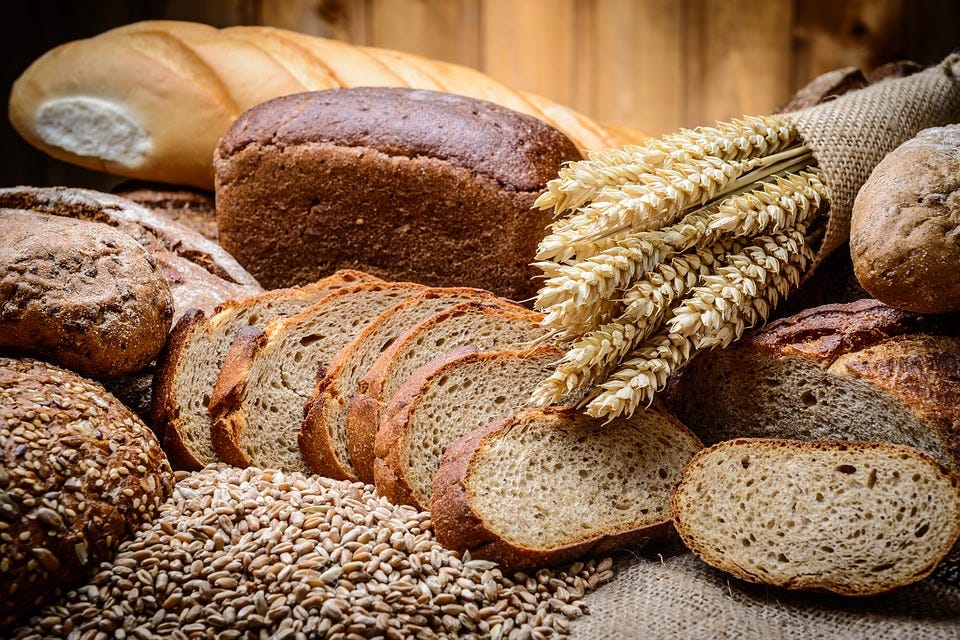Bake bread and be a better Lawyer
In Bake bread and be a better lawyer, Ken Grady explains why you can have great bread and a more efficient law practice. It’s an intriguing metaphor and the first in a series Ken is working on. Enjoy.
Many years ago, I decided to learn how to bake bread. I’m not sure what got me started, though I have  always been interested in trades and crafts. In another life, I would have liked a career designing and building wooden furniture, running a bread bakery, or perhaps some other such trade.
always been interested in trades and crafts. In another life, I would have liked a career designing and building wooden furniture, running a bread bakery, or perhaps some other such trade.
Artisans who have these businesses — especially those willing to devote their lives to excelling at their trade — captivate my imagination. It takes an unbelievable amount of dedication and work to do these things well. Today, it is far more than I see of law students and lawyers in their craft. More on that another time; today we bake bread.
My return to baking
After my first push into bread baking one summer, I dabbled in it over the years. Too many things tugged at my calendar to give it much attention. I would jump in and do a few loaves, and then get pulled another way. I went back and forth like this over the years, with a significant library of bread-baking books, but no time to dive in and get serious about the results.
A recent major change in my life has given me the chance and good reason to make this the moment to get serious. Home-made bread has many advantages over store-bought bread. The first is quality. Even though today you can go to your local grocery store and get “artisan” breads, they don’t compare. A great loaf pulled from your oven will clobber an artisan bread that must survive the grocery store supply chain. Your bread will easily win on taste, texture, look, and overall quality.
Home-made bread also gives you great control over the product. You decide what flour to use, what type of bread (most types aren’t offered in stores), how sour you want the sourdough, what variations (fig plus parmesan cheese anyone?), and even shape (round, batard, rolls, other?).
The psychological aspects of bread baking add enjoyment and meditative qualities. Seeing what you can create with flour, water, and yeast is a deeply satisfying experience. It is a way of connecting you to your food and to your history. If you choose to hand-knead the dough, you will gain the meditative aspect. Taking 15 minutes to push, pull, squish, and drop a pound or two of bread dough gives you a chance to clear and focus your thoughts while doing productive work.
When you compare what you gain from making bread at home to what many want out of their law practices, there are similarities. The satisfaction of creativity (picking what you will bake or finding the solution you think best meets the client’s problem), the creative plus the operational (how to get to the finish line is your choice, but you must have a path), and the satisfaction of completing the task. And as a benefit, dough generally is more forgiving than a client.
Transferring bread baking knowledge to the legal practice
Apart from the qualities I have mentioned, what is it that turns bread baking into something to help a legal practice? It is understanding the processes and how to improve them that underlies both.
If you want to bake a great loaf of bread, you must have a process. The process must be detailed and you must follow it. But, the process must have some flexibility built into it. The same things are true in a legal practice. The key difference today is that bakers know what they must do and lawyers don’t.
Lawyers live life on the high wire without that process support. That is one of the reasons why you can go to a baker every morning and get the same, consistently great product to put on your table. But, if you go to the lawyer each morning, what you will get is driven as much by random luck as anything else.
Let me use what I am trying to do at home with bread baking to expand on that thought. My wife likes to eat an Ezekiel bread as her basic sandwich bread. An Ezekiel bread is based on the bible’s admonition: “Take also unto thee Wheat, and Barley, and beans, and lentils, and millet, and Spelt, and put them in one vessel, and make bread of it…” Ezekiel 4:9. Technically, it is a batter bread not a yeast bread. It also is a wonderfully nutritious bread. By sprouting some of the grains in the bread before baking, you release many nutrients.
My go-to bread for a sandwich loaf is an oat bran bread. For a dinner bread, we both like a peasant bread, which is a mixture of white, whole wheat, and rye flour shaped into a round loaf. We also like sourdough bread. Finally, we like many other bread types — such as a basic boulé made with dates, cheeses, herbs, or other add-ins.
My goal is to get us off store breads. That means I need a complex baking schedule sufficient to support these many bread types and the rates at which we eat them. If you think of each bread as a “matter,” then my workflow consists of the processes to make each bread type interwoven on a schedule that takes us from start to finish for each bread. In a pure lean approach, I would bake each day what we need each day, no more, no less. Ideal, but unlikely. So, for now at least, we have a buffer of breads in our freezer. The buffer size is determined by the longest period I might have to go without baking bread.
As a lawyer, your workflow consists of matters (my breads) and the processes to produce the output needed for those matters. We share a problem and that is how we knit the processes together and weave them around so that everything gets done, when it should get done, at a level no higher nor lower than is fit for our customers’ purposes. The lawyer has an additional burden. The lawyer cannot accurately predict which matters will come into the shop, whereas I can predict the breads I will need. How do we manage the mess?
I have a plan
Start with my recurring problem. I need to map out the process for making each type of bread. I need a way to knit each process into what I am already doing. I also need a quick and easy way to track what I should be doing each day. Which bread should start for rising? Do I need to refresh the sourdough starter? When do I bake?
With my processes mapped, I need a kanban system (I’ve covered kanban systems in other posts, so I’m taking the leap you have at least basic knowledge of a kanban board). The kanban system is perfect. It will give me a visual way of tracking the many processes. I’ll go into my baking kanban in a subsequent post, but the basic fit is there.
My home baking adventure is far more ambitious than most will want to do today, and requires more time than most can devote to it (and, of course, I have not even gotten to my cheesemaking processes). But, I am at a point where I can devote the time and energy and I want to do so (bread baking also gives me a break from reading, thinking, and writing — my other primary occupations of the moment). The lessons you will learn, however, can be used even if you want to bake one loaf a week so don’t knock the approach because it is based on “large volumes” or an “assembly line of bread.”
Improving legal practices
I finished grading papers from my Delivering Legal Services class a week or so ago. As I read the papers, I was struck by the horrifying theme that ran through them. Each paper talked about applying a method (project management, kanban, process improvement, etc.) to a particular law practice. The students chose the law practices, and most chose places where they had worked as interns or externs.
The descriptions of the law practices were enough to make a lean thinker cry. The firms were out of control. Clients and lawyers suffered alike. Some went out of business. Yet, at almost no cost and with a bit of training, all could have seen real, measurable improvement. Some law firms could have been saved. Clients and lawyers alike would have been thrilled.
It is too easy to forget that our profession, most of which exists in small law practices, is struggling. The response of bar associations has been to strengthen the wall that separates lawyer from client in the hope that doing so will protect lawyers. I disagree with that approach, and I see how it is killing the profession. It is easy to focus on large corporate law practices and bemoan the lack of change, but they can fend for themselves.
It is clear that the ones who need the most help are those in the small offices, legal aid offices, public defenders office, and alike. If we can train them to survive in the 21st century, and if we open our minds to new, collaborative practices, we may just yet pull off the save of the century: access to justice for all.
Author of Bake bread and be a better lawyer
 Ken is a speaker and author on innovation, leadership, and on the future of people, process, and technology. He is Adjunct Professor & Member, LegalRnD Faculty, Michigan State University. On Medium, he is a “Top 50” author on innovation and leadership. You can follow him on Twitter, connect with him on LinkedIn, and follow him on Facebook.
Ken is a speaker and author on innovation, leadership, and on the future of people, process, and technology. He is Adjunct Professor & Member, LegalRnD Faculty, Michigan State University. On Medium, he is a “Top 50” author on innovation and leadership. You can follow him on Twitter, connect with him on LinkedIn, and follow him on Facebook.
Bake bread and be a better lawyer first appeared on Ken’s blog, The Algorithmic Society on January 17, 2018.


Leave a Reply